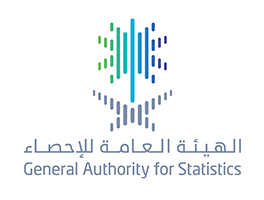
«الإحصاء السعودية» تقدم للشورى خطتها الاستراتيجية في التحول إلى هيئة مستقلة
Department of Statistics (formerly the General Authority for Statistics currently) members of the Committee of Economy and Energy Shura Council presented its strategic plan in the transition to an independent body, it came after a discussion of the Council's annual report to the Department of Statistics in the past general. Put some members of the Saudi Shura Council at their session yesterday, a number of views on the Department of Statistics report in the past year, comes at a time when the Department of Statistics turned into a public body for the census, a decision of the Council of Ministers about five weeks ago. In this regard, an informed source revealed «Middle East» yesterday that the General Administration of Statistics in Saudi Arabia will achieve its objectives through the provision of statistics and data and information and high-quality indicators, as all categories of beneficiaries of government agencies and enterprises and private individuals to various statistical areas (demographic, social, economic and environmental and cultural), so take advantage of them in the planning of development work. He said the same source, that the members of the Committee of Economy and Energy Shura Council, briefed on the strategic plan for the benefit of former public statistics, which will be applied in the transition to an independent body, where this plan is based on two major dimensions, namely: the beneficiary of the government agencies, private facilities, and members of service , in addition to high quality. The source said: «These two dimensions that contained five axes of development is the strategy based on the beneficiaries service, and statistical products and services of surveys and research, and methodology of statistical work and procedures, and the development of technical infrastructure for the development of statistical work, and the culture of the organization and capacity building, and restructuring and governance work». He pointed to the same source, to ensure that all the focus of a lot of projects and initiatives in accordance with the time schedule of expected Ontsem in a qualitative leap for statistical work in Saudi Arabia. , The Commission asked for the economy and energy Shura Council, during yesterday's session, the Department of Statistics to expedite the transition to Algiomkana Statistical System, to complete the basic structure of the Standard Rules Spatial Information National, and requiring all government agencies to provide information and data for the project automated link system information, on the bases technical and schedule required by the project. It also demanded the development of budgets for projects, statistical surveys and the transition to Algiomkana statistical system, in order to provide sufficient flexibility to spend it to be completed in the time required. During the session, Mohammed al-Mutairi student, information about the project to shift Algiomkana Statistical System, and hoped to provide this information to evaluate the project and support the necessary recommendations. He called Dr. Saeed Sheikh Department of Statistics to develop its website, providing information on the raw data, researchers can use the form and interested. While Dr. Mohammed Al Naji said during his speech that the Department of Statistics is still using an older scientific techniques, while Dr. Mansour Alkredes stressed the importance of a survey of the workforce in Saudi Arabia every three months, adding that the workforce have statistics of special importance require monitored on a quarterly Yearly dynamic response to changing realities. He suggested Dr. Abdullah Al-Harbi, establishment of a national data bank and information, and cooperation with the statistics departments at universities to build partnerships and specialized rehabilitation of the cadres of interest, and to cooperate with the Shura Council to find a center for public opinion polls and trends. Saudi Shura Council session saw yesterday, to approve the proposal to add two paragraphs fourth and fifth articles of the health system, introduced from Dr. Mona Al-Mushayt and decided Shura Council approval of some «model contract public construction» prepared in light of those amendments and recycled to the Shura Council for consideration in accordance with amendments introduced by the Government on a number of competitions and the government procurement system and project materials to article 17 of the system board. These developments come after an extraordinary economic steps, which decided the Saudi Council of Ministers about five weeks ago, converting Department of Statistics to the general body of the census, and in this regard, said the engineer will be launched after ninety days from the date of its publication in the Official Gazette », pointing out that the decision inception keen Adel Faqih, Saudi Minister of Economy and Planning said that «introduction of the new organization of the General Authority for Statistics wise leadership to support statistical track, and translates what looks to him and rulers of the quest towards the further development of service facilities, especially what has to do with the affairs of statistics, data and information, and that to cope with change and successive development in all economic fields, especially after the establishment of the Council of Economic Affairs and Development. He noted architect jurist as given to the Department of Statistics and Information before converted to body care cream and high-Care of the Custodian of the Two Holy Mosques, and the Crown Prince and Crown Crown, to play its role in the provision of statistical data which contribute to strengthening the country's economy and development in various fields. The Minister of Economy and Planning, Saudi Arabia, that the issuance of this decision was an extension of a lot of decisions, orders and directives of the High precious to support and enhance many of the sectors of government turning to independent bodies proved right those decisions and effectiveness in view of the data that touched and experienced Staff of those sectors and the beneficiaries of its services. He Engineer Faqih hoped to be in the issuance of this wise decision motivation and incentive to tender wealthy achieve what the new body to aspire in their plans and programs and keep pace with the size of the aspirations of the beneficiaries of their services, adding that «this organization, which consists of 28 articles provision in Article II that arise General body called the General Authority for Statistics and enjoy public legal personality and financial and administrative independence, and organizationally linked with the Minister of Economy and Planning ». And that the new regulation provides for the formation of the Governing Council of the Commission headed by the Minister of Economy and Planning, and the membership of the Chairman of the Authority, and a number of members who represent some of the relevant government agencies and a representative of the Council of Saudi Chambers, and two representatives of specialists work of the Commission. According to Faqih that the purpose of the establishment of the Authority is to organize and activate the statistical work in Saudi Arabia, through the preparation of a comprehensive, accurate and unified national statistical system and follow up on its implementation, and the development of plans and programs necessary to meet the statistical needs, service development plans, scientific research and various activities. The Minister of Economy and Planning of Saudi that the new organization stressed that «the General Administration of Statistics» responsible for statistics in Saudi Arabia, is the only official statistical reference for the implementation of statistical work system and technical supervisor and regulator to him, a jurisdiction that conducts surveys, as it is the research and studies and dissemination of the results of the different areas statistical, and it is in relation to the conditions of the community and its activities. Engineer jurist considered that the Council of Ministers to ensure that the decision of the Board of Directors shall review the general statistics of the state system, and suggest what would need to be in, and submit it according to regular procedures
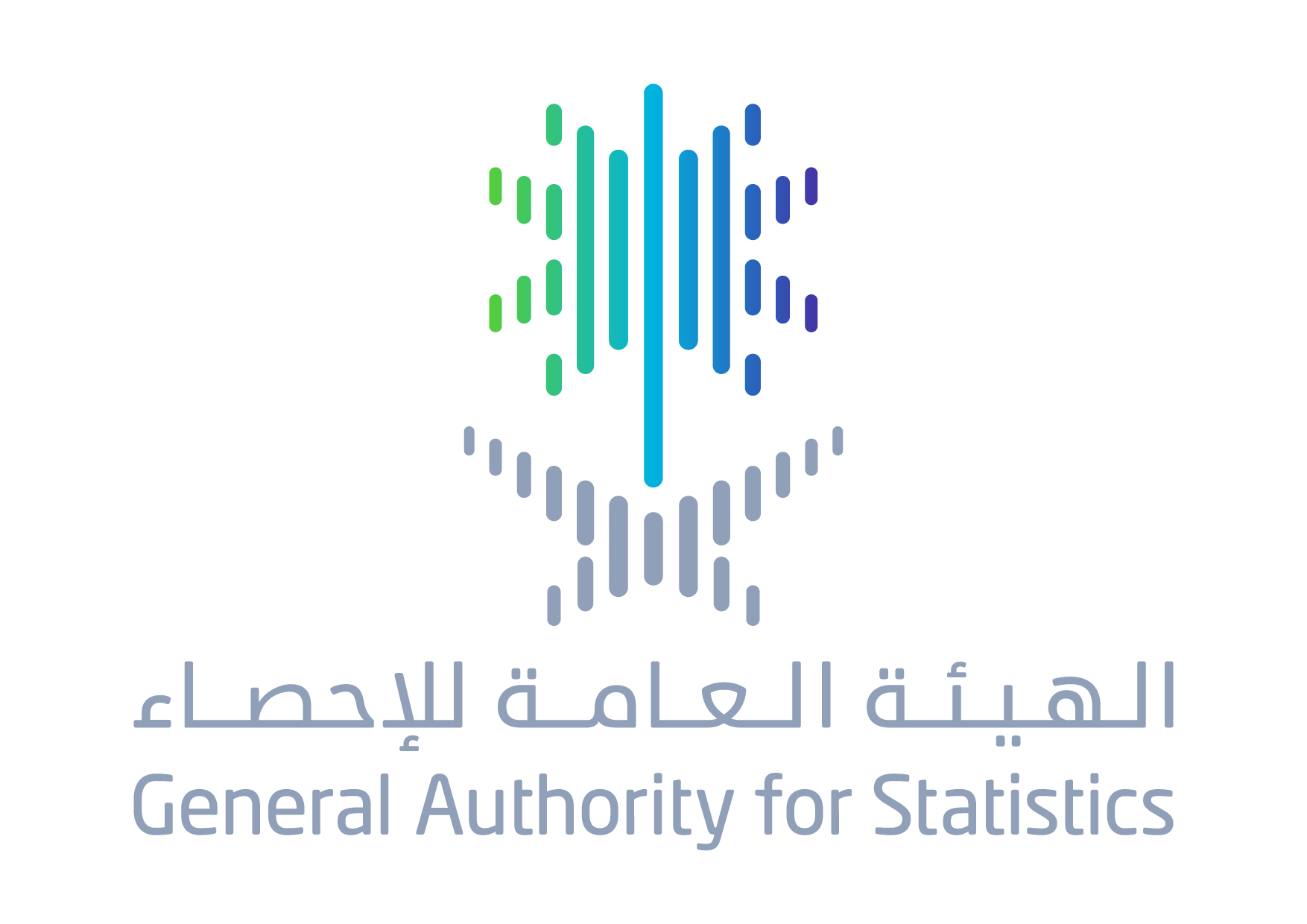
الهيئة العامة للإحصاء: انخفاض الرقم القياسي لأسعار العقار (6,3 %) مقارنة العام بالماضي و استقراره مقارنة بالربع الثاني
GaStat: Real Estate Index Decreased by (6.3%) compared to the previous year and stabilized compared to Second Quarter
On Tuesday Safar 4th, 1439 (October 24th,2017), GaStat issued its quarterly indicator of the real estate price general index in the Kingdom of Saudi Arabia for the third quarter (2017) and published it through its official website www.stats.gov.sa . This indicator is based on available registry data of the Ministry of Justice regarding real estate transactions. This indicator is an essential tool that supports entities which make economic and statistical decisions regarding the real estate price movements and future forecasts during different periods of time. The indicator includes three main sectors consisting of many real estate types: residential sector (piece of land, building, villa, apartment, and house), commercial sector (piece of land, building, shop, gallery and commercial centre), and agricultural sector which only includes agricultural land.
The index of real estate prices for the third quarter 2017 recorded a relative stability compared to the previous quarter (second quarter 2017), reaching (84.9) in the third quarter 2017.
The report attributed the stability of the real estate price index for the third quarter of 2017 to the varying percentage of change in the main sectors composing the indicator. The commercial sector witnessed a decline by (1.0%), the residential sector witnesses an increase by (0.2%), while the agricultural sector was stable without any relative change.
The indicator recorded a decline of (6.3%) compared to the same quarter of the previous year (third quarter 2017). The report attributed this decline to the decline in the main sectors composing the indicator: the residential sector (7.9%), the commercial sector (10.9%) and the agricultural sector (1.0%).
GaStat: The Saudi unemployment rate is 12.8% in the 2nd Quarter (2017)
Labor Market Bulletin Includes 67 Statistical indicators
GaStat: The Saudi unemployment rate is 12.8% in the 2nd Quarter (2017)
The General authority for Statistics (GaStat) published the Labor Market Bulletin for the second quarter of 2017 on Sunday Muharram 11th,1439H (Corresponding to October 1st,2017) which provides comprehensive data and indicators on the labor market in the Kingdom from April 1st to June 30th, 2017 (Corresponding to Rajab 15th to Shawwal 6th, 1438H) to support decision and policy makers regarding labor force. It also contributes in building a database on the labor market in the Kingdom that can be used to prepare and plan future social and economic development programs.
The quarterly bulletin includes 67 statistical indicators which contain data and indicators from the Labor Force Survey estimates and labor market data from the administrative records of the relevant entities (Ministry of Labor and Social Development, Ministry of Civil Service, General Organization for Social Insurance(GOSI), Human Resources Development Fund and National Information Center) applying international standards in this area.
The results of the bulletin for the second quarter of 2017 indicated that the total number of employees from the data of administrative records in the Kingdom of Saudi Arabia reached (13,841,158) individuals compared to (13,889,137) for the first quarter of 2017.
According to the results of the bulletin also from the data of administrative records in the government agencies for the second quarter of 2017, the total number of Saudis seeking work reached (1,075,933) individuals, (216,352) of them are males and (859,581) are females.
The results also showed that the highest percentage of Saudis seeking employment was among the age group (25-29), which is (34.2%). Also according to the results of the administrative records data, nearly half of the Saudi job seekers hold university degrees reaching (50.5%).
The results of the bulletin showed that the unemployment rate in Saudi Arabia for the Saudi population (15 years and over) from the Labor Force Survey estimates for the second quarter 2017 reached (12.8%), (7.4%) are males and (33.1%) are females. And the unemployment rate in the Kingdom for the total population (15 years and over) is (6.0%), (3.3%) are males and (22.9%) are females.
The results also showed that (11.6%) of the unemployed Saudis had previously worked, and (32.9%) of unemployed Saudis who had previously worked left their jobs due to dismissal from the employer. The survey results also showed that (9.6%) of unemployed Saudis have already been trained.
Regarding the economic activity rate of total population (15 years and over) it reached (54.2%), divided between males (78.2%) and females (18.7%). In its bulletin, GaStat also explained that the economic activity rate for total Saudi population (15 years and over) reached (40.3%).
The bulletin included a large number of detailed data on workers according to the regulations they are subject to, nationality, sex, age, administrative region and educational level, as well as data for job seekers, average monthly wages, working hours and domestic workers.
For more details, you can view the bulletin through Gastat’s official website: www.stats.gov.sa
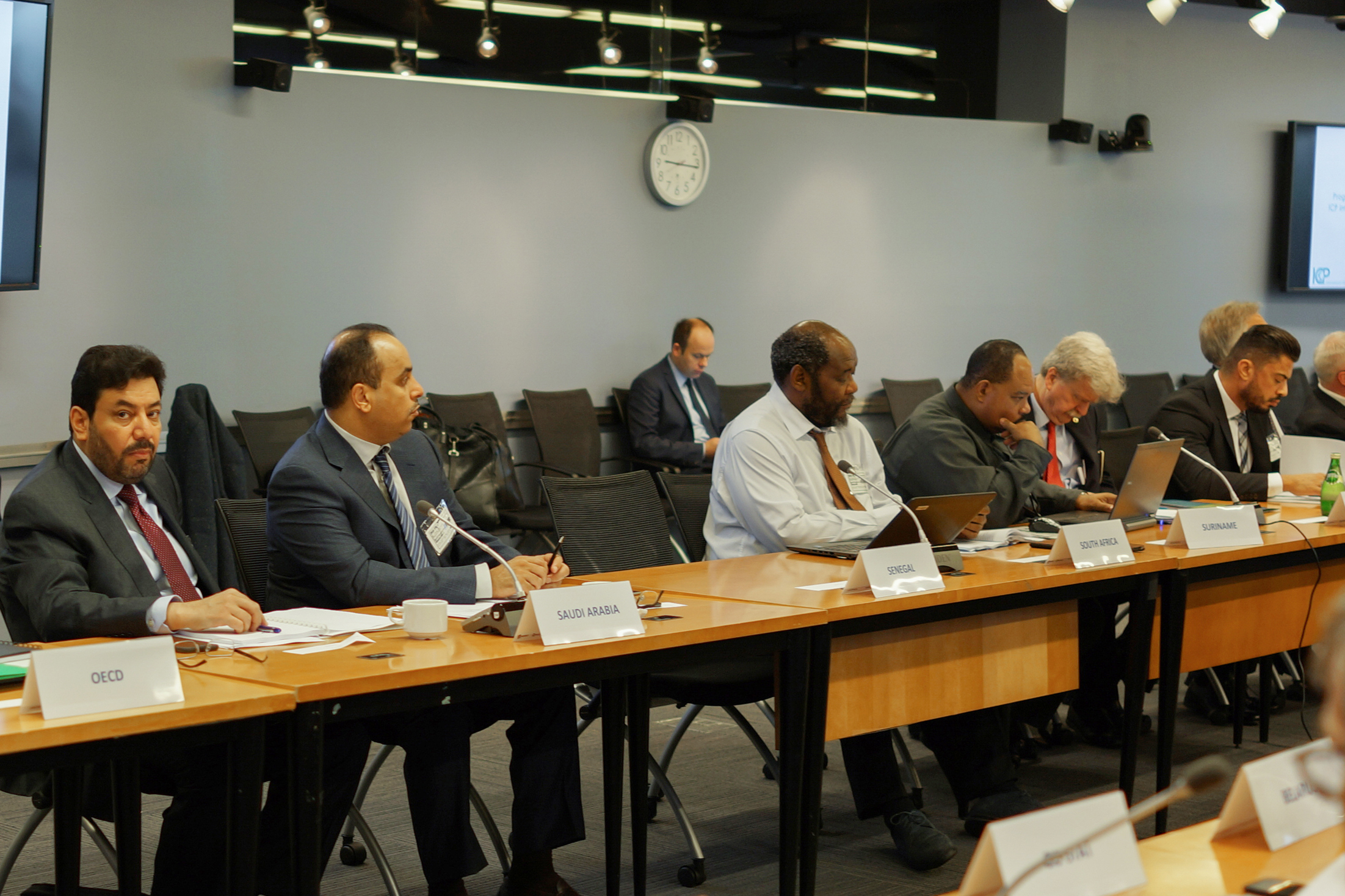
د. التخيفي : تميز المملكة العربية السعودية في الإحصاء قادها لعضوية المجلس والمشاركة في اجتماعاته الدورية
UN International Comparison Program board of directors holds second meeting
Dr. Altekhaifi: KSA's distinctive work at statistics leads to council membership and participation in recurring meetings
Saudi Arabia has participated at the second meeting of the board of directors of the International Comparison Program (ICP), which was held at Washington D.C. early this week. His Excellency, president of the General Authority for Statistics, Dr. Fahad bin Sulaiman Altekhaifi, confirmed that the program’s work and results will help shape policies for global comparison to support statistical products of the participating countries. It will also enable the General Authority for Statistics to access the best global practices for statistics for the purpose of improving and developing the statistical work. Also, it will raise the quality of the data, which will reflect positively on the decisions for development that rely mainly on statistics.
On the other hand, his excellency Dr. Altekhaifi pointed out that the board of directors, which has 11 countries including Saudi Arabia, which represents west Asia, has looked into the progress made when implementing the 2017 cycle in the participating areas. The council also specified a list of research topics including, implementing a rolling survey approach and building Purchasing Power Parity (PPP) time series, integrating ICP and Consumer Price Index (CPI) activities, Streamlining the process of establishing product lists and the use of importance indicators, improving the availability and quality of input data for rents, government services, and construction, streamline the use of productivity adjustments for government services, fine tuning global linking procedures, quality assurance of resulting PPPs and measures of reliability and other topics related to statistical work.
Dr. Altekhaifi added that the ICP selecting of Saudi Arabia for the membership at the 2017-2019 cycle came as a result of the positive role of the General Authority for Statistics in different statistical programs organized by the UN. It also confirmed the kingdom’s effective role on the global map of statistics. Moreover, it reflects the results of the strategic transformation of the kingdom’s Statistic sector, which the leadership cares for and supports due to its role in aiding the national development decisions. The ICP, which is under the supervision of the World Bank, is a partnership program for statistics on a global level. It is based on a statistical system that is connected with economic analysis. It uses statistical methods to derive the necessary data to calculate the PPP for about 200 countries and economies worldwide. It will facilitate the use of PPP as currency converters. That will allow for the comparison of the total economic indicators and the economic situations of countries worldwide.
It is noteworthy to mention that the ICP board of directors is compiled of executives, chairpersons, and leading experts in 11 statistical devices participating in the program. They are distributed according to the regional areas: Africa, Asia, Pacific Islands, Latin America, the Caribbean, West Asia, Commonwealth of Independence States, European Union, non-European Union States, members of the organization for Economic Cooperation and Development, representatives of the International Monetary Fund, World Bank, UN Statistics Division, and the Inter-Agency Coordination Group.
GaStat Launches the “Statistical Calendar” for 1438H Hajj Season
More than 450 Statisticians Started this morning
GaStat Launches the “Statistical Calendar” for 1438H Hajj Season
Through its official website www.stats.gov.sa, the General Authority for statistics (GaStat) launched the statistical calendar for the 1438H Hajj season. It shows the publishing dates of services provided by the Kingdom to pilgrims, in addition to the statistics of domestic and international pilgrims.
GaStat official spokesman, Mr. Taiseer Almofarrej, explained that the statistical calendar with its content, from statistics and numbers, aims to show the efforts made to pilgrims from more than 45 public and private entities. On the second day of the current month of Dhu al-Hijjah, the statistics of services provided to pilgrims from health and medical services, public services, transportation sector services and telecommunication services will be announced respectively. Then, the number of domestic and international pilgrims arriving to Makkah will be published and updated daily until the evening of the 9th day of Dhu Al-Hijjah when the total number of pilgrims will be announced. Mr. Almofarrej added that GaStat will issue the detailed bulletin of Hajj statistics the morning of Eied day (10 Dhul Al-Hijja ), he also added that all information will be available at GaStat official website on schedule.
On the other hand, GaStat official spokesman explained that the enumeration of pilgrims coming to Makkah has started the morning of Wednesday (1st of Dhu Al-Hijjah), by more than 450 statisticians, administrative and technicians from GaStat. They are distributed on all main centers in Makkah, Medina, Jeddah and Alta’if, and they work 24 hours until the sunset of Arafah day, next Thursday (9th of Dhu Al-HIjjah).
GaStat called all pilgrims coming to Makkah for Hajj to provide the necessary statistical data required in all Pilgrims enumeration centers this year which are (Makkah/Jeddah Highway) Road , (Makkah/old Jeddah)Road, Altan’eim center(the connection road between Medina and Makkah), AlShrai’e center (the connection road between Makkah city and Alta’if city through AlSail), Alkar center (the connection road between Makkah and Alta’if through Alhada), and the Southern center ( Allaith -Jazan road near Als’adeiah village) in addition to the Hajj statistics supportive centers in Jeddah at King Abdulaziz international airport, mass transportation stations, and other locations in Jeddah, Medina center (Abiar Ali and ‘Ashirah), and Alta’if center (Alsail Alkabeer).
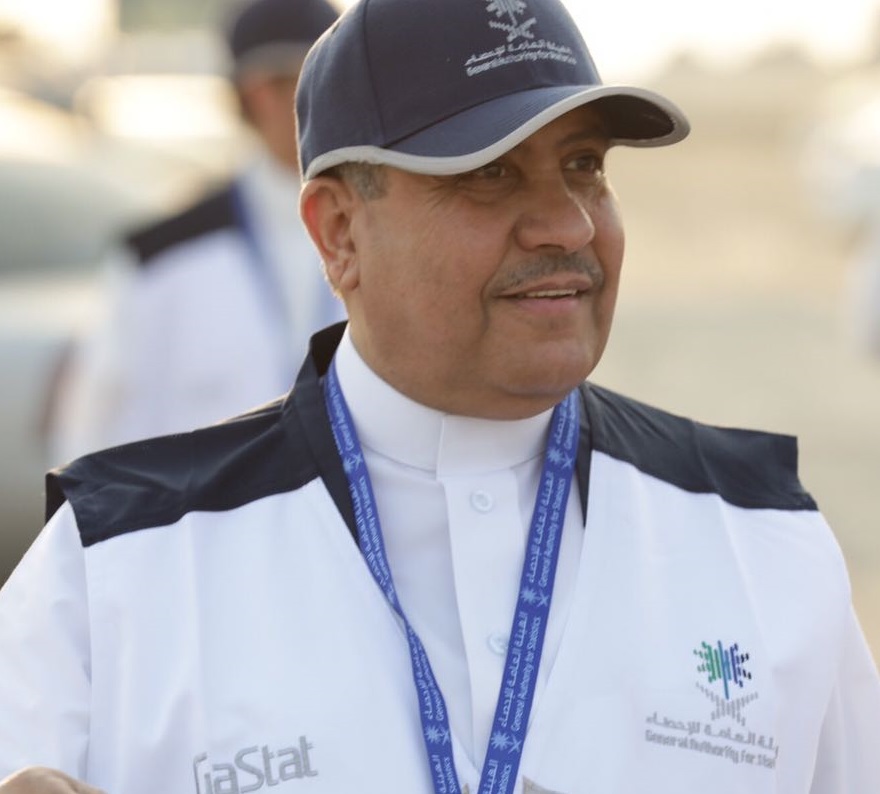
" الإحصاء ": الإعلان النهائي لأعداد حجاج 1438 هـ بعد مغيب شمس يوم عرفة

قرابة 24 مليون حاج خلال عشر سنوات تشرفت بخدمتهم المملكة العربية السعودية
GaStat Enumerates Pilgrims Every Year
Saudi Arabia has been honored to serve nearly 24 million pilgrims in 10 years
According to the official statistics of the General Authority for Statistics (GaStat), the total number of pilgrims that Saudi Arabia has been honored to serve during the last ten years has reached 23,935,354 pilgrims. The last Hajj season (1437H) recorded the lowest number of pilgrims during the last ten years as it reached 1,862,909 pilgrims. While the year (1433H) recorded the highest number of pilgrims during the last ten years as it reached 3,161,573 pilgrims.
The official spokesman of Gastat, Mr.Taiseer Almofarrej, explained that the task of pilgrims enumeration every years is one of the tasks that Gastat has the honor of. It started since 1390H since Gastat was called (the Central Department of statistics), in order to provide accurate information that helps all state agencies in planning and development of everything related to serving Hajj visitors. This mission continued during all these years to witness developments and enhancements in the enumeration techniques every year to be more accurate and comprehensive. Mr. Almofarrej added that the Hajj statistics program aims at the completion of all future planning programs to ensure providing the necessary services needed by the guest of Makkah, whether social, health, security, food, or transportation services. This is done through using a time series of accurate data about the number of pilgrims, in addition to the estimation of labor forces needed for providing the necessary services for pilgrims during Hajj season every year. The data and number of pilgrims is also used by relevant systems who studies the preparations and main facilities in Makkah city and holy places, and take it into consideration when preparing the necessary plans. In addition, accurate data and information about Hajj statistics is provided to researchers, students, and individuals who are interested in this field. The data is also used in the evaluation of activities and events made by relevant entities who serve pilgrims, in addition to identify the method of arrival of domestic and international pilgrims.
The official spokesman stressed that GaStat will be announcing the number of pilgrims periodically starting from the 1st of Dhu al-Hijjah. GaStat will also announce the final and official number of pilgrims on the evening of the ninth day of Dhu al-Hijjah through the Hajj statistics bulletin. The Bulletin will include detailed results about: number of domestic pilgrims, international pilgrims, pilgrims by gender, pilgrims by nationality, pilgrims by arrival destination, number of cars carrying pilgrims by type, and other detailed data.
It is worth mentioning that the number of pilgrims in the last ten years exceeded 3 Million pilgrims in one time, and it exceeded 6 Million pilgrims 6 times. The number was lower than 2 Million in 3 Hajj seasons, and last year was the lowest according to the following table:

الهيئة العامة للإحصاء تبدأ الخميس المقبل بزيارة أكثر من 57 ألف أسرة
In cooperation with the Communication and Information Technology Commission and the General Sport Authority
GaStat starts to visit more than 57,000 households next Thursday
The General Authority of Statistics (GaStat) will start next Thursday, 19 Shawwal 1438H (13 June 2017), to visit more than 57,000 households in all regions of the Kingdom in coopereation with the Communication and Information Technology Commission and the General Sport Authority to conduct 3 household surveys: the survey of ICT’s access and use for households and individuals, sports survey for households, and the labour force survey for the third quarter. GaStat calls upon all citizens and residents to cooperate with the statisticians working in the field in 13 regions of the Kingdom including their cities and provinces. The work of than 450 field researcher will continue until 25 Dhu al-Qa’dah 1438 H (17 august 2017).
GaStat official spokesman, Mr. Taiseer Almofarrej, explained that the household sport survey is one of the requirements of the Saudi Vision 2030 in cooperation with the General Sport Authority. It aims to provide recent indicators about the extent of playing sports for households. Through its results, stakeholders will learn about the reasons for playing sports or not and they will get updated statistics about the relationship of households with sports. It will also provide a comprehensive picture on the size of community participation in sports and physical activity. In addition, it will provide data on the ratio of sports practitioners within the household who practice sports on a regular basis, at least once a week. It also provides data on the percentage of sports practitioners in public facilities, clubs or sports centres, and the number of times a person is engaged in sports during the week, and the reasons why a person may not exercise.
Mr. Almofarrej added that this survey coincides with the Labour Force Survey for the third quarter of this year which aims to provide detailed data about national labour force, measure the rates of employment and unemployment, provide data on employed and unemployed individuals, identifying the average monthly wages of the workers, provide data on the average weekly actual working hours by occupation, and economic activity of workers, and data on formal and informal workers. The results will be published in the Labour Market Bulletin, which was recently launched by GaStat.
Regarding the survey of ICT’s access and use for individuals and households, GaStat’s official spokesman said that in cooperation with the Communication and Information Technology Commission aims at providing updated data and indicators on the extent of household and individual’s access to information and communication technologies. It includes: the availability of communication and information technology devices, the extent of using mail services by households and household access to ICTs. The survey will also provide individual data including: the extent to which information technologies are used for individuals, age groups, educational and occupational status, difficulties, places of use and reasons for not using ICTs.
On the other hand, Mr. Taiseer Almofarrej confirmed that the GaStat has been keen to involve all relevant parties from data producers and users in developing its statistical products from creation to publishing through integrated partnership. A training program was recently held for the supervisors of these surveys, in which the Communications and Information Technology Commission and the General Sport Authority has participated.
GaStat has confirmed that all information will be treated as an information basis which is reliable and can be used by development decision-makers in all relevant government entities that will serve the interest of citizens and residents. Gastat also has mentioned that al statistical researchers carry official badges and they are officially authorized to collect data to be kept confidential in accordance with the general statistics system issued by the Council of Ministers. GaStat also made available on its official website www.stats.gov.sa the opportunity for students and interested individuals to view field search forms on which the data will be collected. All households and establishments may inquire through the toll free number 8001240440 about this work or other coming work.
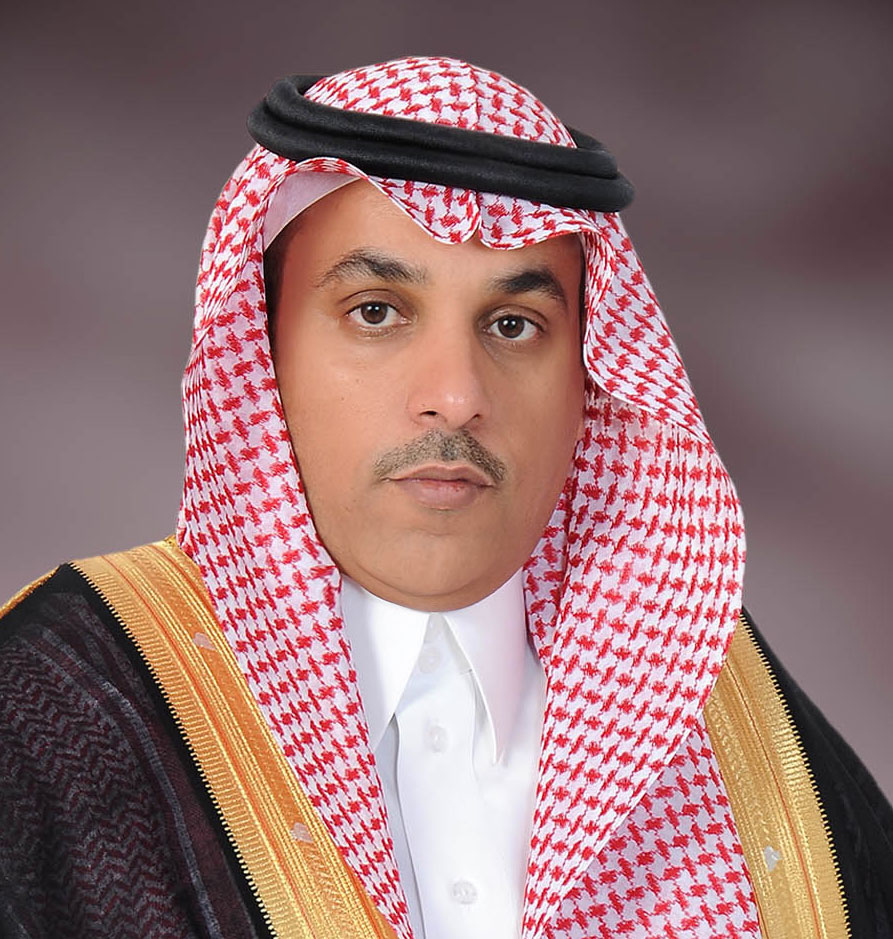
مجلس الوزراء يوافق على التعاون الإحصائي مع هولندا وكوريا
Administrative-based Census and Centralized Data System Included
Cabinet Okays Statistical Cooperation with Netherlands and Korea
As part of its continuous support for statistical sector in Saudi Arabia, the Cabinet has approved in its sessions held on Ramadan 3rd and 17th respectively, the mandate to the Minister of Economy and Planning or his nominee for holding discussions with the Dutch and Korean sides on statistical development, and to sign memorandums of understanding (MoU) with them in this regard.
His Excellency President of the General Authority for Statistics (GAStat) Dr. Fahad Sulaiman Altekhaifi hailed the decision stressing:
“The statistics sector in Saudi Arabia receives ongoing support from our leaders at all levels; establishing the importance of statistics in development. These agreements aim to develop our statistical endeavors based on the world’s best practices in the field. Also, our discussions with the Dutch side will address developing modern mechanisms to implement register-based census in compliance with the internationally recognized standards, including a defined statistical approach to run censuses, document data, and to store them in statistical archives. Also, this includes developing the necessary technical tools to create a comprehensive system from census databases, and leverage them in statistical surveys and studies, those implemented by GAStat, public or private agencies. The bilateral cooperation between KSA and Netherlands enhances sharing statistical awareness programs to ensure community participation and to share success stories, to boost the exchange of expertise between both countries, and to take part in statistics-related training courses, conferences, forums, seminars and workshops."
As far as cooperation with Korea is concerned, GAStat President noted: “It features the development of technical mechanisms to collect and publish statistics in accordance with the internationally recognized standards, to identify basics needed to create a comprehensive system using various statistical databases and to share expertise as to the requirements to build a centralized data center, which will automatically be connected to all public agencies. Also, this is meant to secure the tools needed to activate these centers, and to develop public policies and mechanisms to provide statistics-based technical and advisory services to both public and private entities.
It should be noted that GAStat has undertaken a series of preparatory steps with several local and international organizations towards finalizing the preparations for the (1440H – 2020) census, which will be the first register-based census using administrative records (civil registration number, national ID number, resident ID number), as well as the national home address. Unlike earlier censuses, this census features a comprehensive electronic connectivity with a number of stakeholders, including the National Information Center, Ministry of Education, Ministry of Housing, the Saudi Post, as well as various sectors in concern with the citizen, resident and housing data.
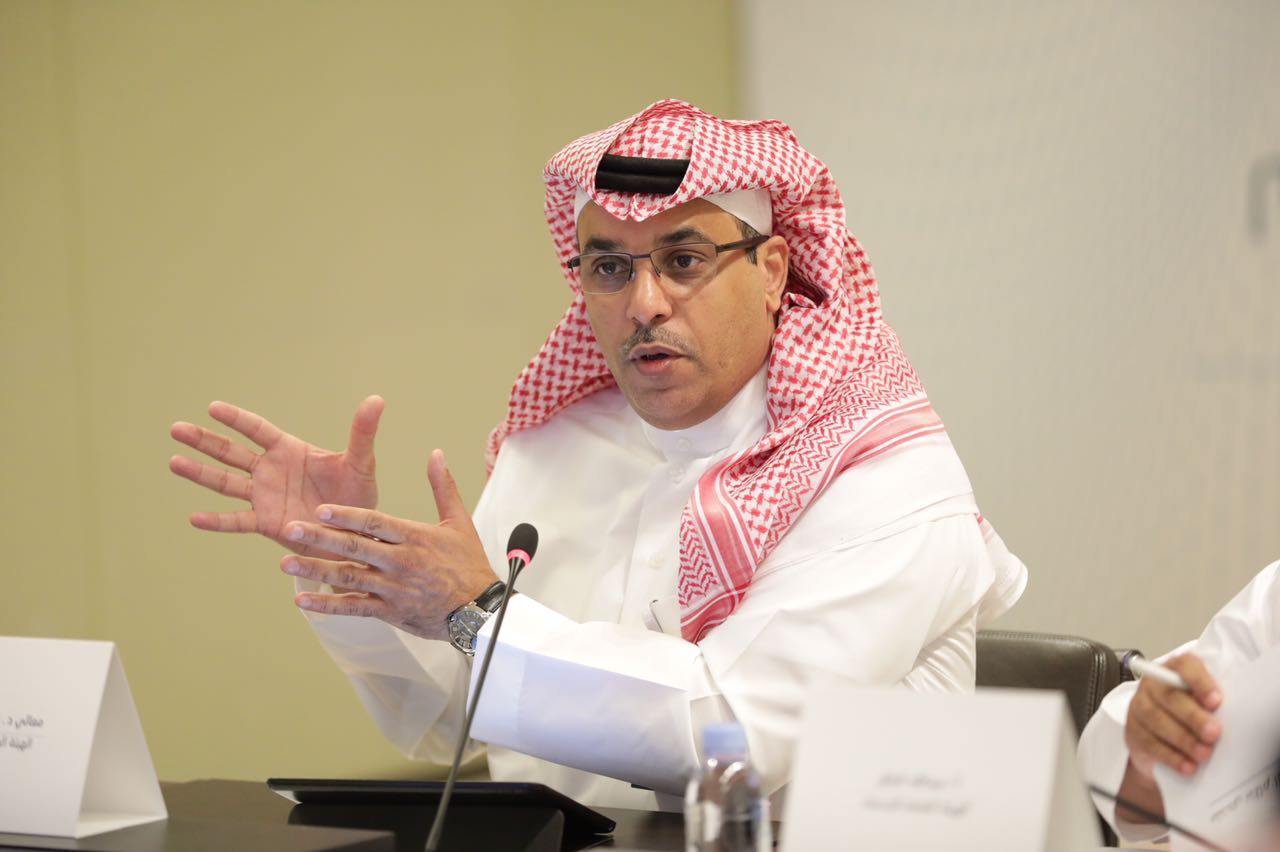
الهيئة العامة للإحصاء تناقش مسودة نظام الإحصاءات العامة
In Collaboration with 19 Government Entities to Develop the Statistical Sector
GaStat Discusses the General Statistics system draft
Within the framework of activating the statistical sector in the Kingdom of Saudi Arabia, the General Authority for Statistics (GaStat) held a workshop on Wednesday, 28 Sha’ban 1438H corresponding to 24 May 2017 with 19 government entities and specialized consultation bodies. The workshop was held to discuss the draft of the general statistics system in preparation for its submission to GaStat’s board of directors then for the concerned entities for approval.
H.E. Dr. Fahad Altekhaifi, GaStat President, expressed his gratitude to the workshop participants and asserted that developing the statistical sector is a joint responsibility between relevant entities. He also added that the aim of this workshop is to ensure that the proposed system draft meets all requirements which maximizes its benefit. Furthermore, he explained that the proposed system draft is comprehensive and keeps up with the latest developments in statistical systems in order to activate statistical work and deepen its impact on planning and enhancing statistical awareness. It also regulates the relationship between GaStat, as a supervisor and organizer of the statistical sector in Saudi Arabia, and all constituents of the statistical sector which includes beside GaStat; statistical administrative units in all government entities, private sector and academic sector.
GaStat’s President also confirmed that the current system provides a solid structure for statistical work with the amendments that have been made over the past years. The regulation which was issued by the Council of Ministers Decision No. 11 issued in Muharram 13th, 1437H enhanced and completed the process of developing statistical work. The regulation included a number of subjects that covered a group of regulatory provisions and the most important of these subjects: emphasizing that the Authority has a public juridical personality, and a financial and administrative independence, it is the entity in charge of statistical affairs, the only official reference to implement statistical work, and it’s the only technical supervisor and regulator of statistical work, it is managed by a board of directors which by the regulation has the powers and authority on the statistical sector and its components in the Kingdom of Saudi Arabia. The regulation gave the Authority the task of establishing a permanent coordinating committee. It also gave it the responsibility of establishing a central system for information which is connecting electronically with all concerned entities. In addition to implementing statistical work, the regulation also assigned other tasks to the Authority which include: applying recognised international standards which include statistical work methodology, survey design and implementation, conducting research and studies, analyse data and information, all information and data documentation work, collecting statistical data and information that covers all aspects of life in Saudi Arabia from its different sources and classify it and section it, either from surveys and censuses or from administrative records in public entities and private establishments, analyse this data and extract its indicators, prepare evidences and national statistical classifications according to international standards, using it and developing whenever needed, prepare statistical bulletins and reports of surveys and research and publish it. The regulation also gave the Authority the right to provide statistical services, conduct surveys, prepare statistical research and studies, provide data from its databases to establishments and business sector in a commercial manner and shall benefit from its financial revenues in financing statistical and information services provided. In addition, it is responsible of transmitting knowledge and provide recommendations to public entities to develop all information system and statistical work methodology to achieve a comprehensive, accurate and unified statistical system and to develop public awareness of the importance of statistics, and to monitor and follow up all published data on the Kingdom of Saudi Arabia with the competent regional and international bodies and coordination with the concerned entities. This regulation reflects the leadership's keenness to develop the main infrastructure of all development decisions considering that the statistical products and services given by GaStat is a solid base to support all national development decisions and support policymakers with information that is considered as the compass of development work, which makes this regulation an added value at the development level on one hand and the activation of the national strategy for statistical development on the other.
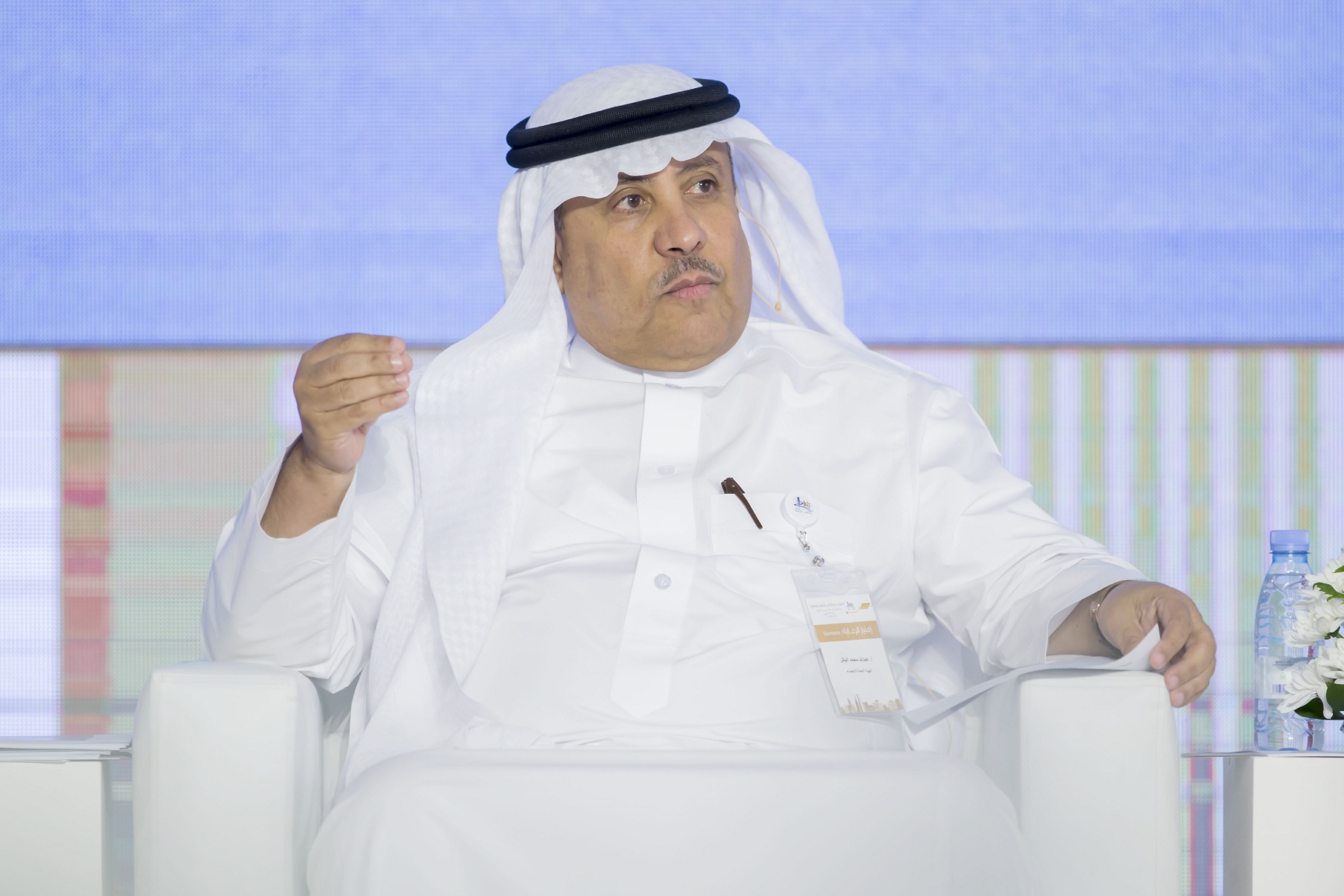
" الإحصاء" : انخفاض مؤشر أسعار العقارات للربع الأول من 2017
Based on ministry of justice registry data
GaStat launches real estate index indicator
On Monday 27th of Rajab 1438 H corresponding to 24th of April 2017, GaStat launched the Saudi real estate index indicator. This indicator is based on available registry data of the ministry of justice which are about real estate transactions . GaStat described this indicator as an essential tool that supports entities which make economic and statistical decisions associated with real estate price movements and future expectations during different periods of time. The indicator includes three main sectors composed of many real estate classes: residential sector ( piece of land, building, villa, apartment, and house) , commercial sector (piece of land, building, shop, and commercial center), and agricultural sector ( agricultural lands).
Real estate price index indicator showed a decrease in the Saudi real estate prices during the first quarter of 2017. The indicator registered a decrease of (2.3%) compared to the previous quarter (fourth quarter of 2016). Whereas it registered a decrease of (9.9%) during the first quarter of 2017 compared to the same quarter of last year.
The report attributed the decrease in the first quarter of 2017 (compared to the previous quarter) to the decrease in all composing sectors: commercial sector (1.8%), residential sector (2.6%), and agricultural sector (0.3%).
On the other hand, the decrease in the first quarter of 2017 (compared to the same quarter of 2016) is attributed to the decrease in all composing sectors: commercial sector (11.7%), residential sector (9.5%), and agricultural sector (1.3%).
GaStat indicated in a workshop ,held in " Restatex " exhibition in Riyadh city, that : as an official reference of statistics and an organizer of the statistical sector in Saudi Arabia, one of Gastat tasks is following up the price movement of real estate composing units and recording the values of their transactions all over Saudi Arabia. In addition to monitoring their changes from time to time through the new statistical product " real estate price index" which relies on the data provided by ministry of justice. This represents the integration and cooperation between the different government entities which aim at moving sustainable development forward.
GaStat also stated that the new statistical product aims at founding distinct real estate statistical indicators that measure the Saudi real estate market performance and fill the gap of data in this sector. It is considered an essential tool that supports entities which make economic decisions in this field. This product's data benefit those who are interested in the economic and statistical analysis of real estate prices and the future expectations during different periods of time. GaStat has issued a complete bulletin about this index and its details.
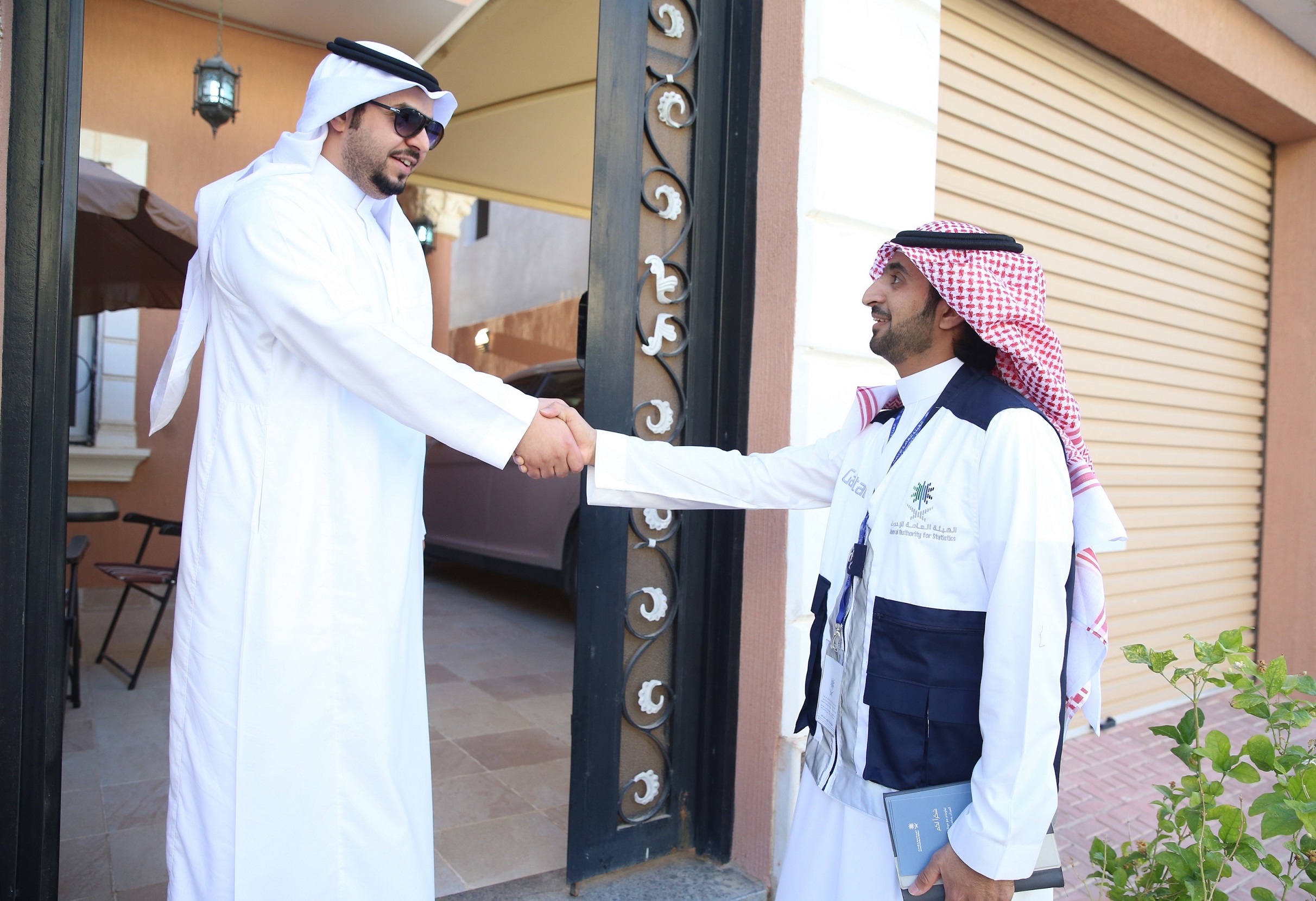
الهيئة العامة للإحصاء تطلق مسح أسري سنوي حتى العام 2020
In a Step Towards qualitative statistical work to measure the economic and social impacts on the household
Gastat launches an annual household survey until 2020
The General Authority for Statistics (GaStat) started last week to visit 24,000 households in all regions of the Kingdom to conduct a survey aimed at households to build economic and social indicators. GaStat called upon all citizens and residents to cooperate with statisticians working in the field in the different 13 regions of the Kingdom of Saudi Arabia, including their cities and governorates. The visits of more than 355 statisticians to households will continue until 8 Sha'ban 1438H corresponding to 4 May 2017.
HE Dr. Fahad Altekhaifi, President of GaStat, explained that this survey is an extension of the tools of supporting decision-makers in developing the study of the economic and social status of households periodically to support the national transformation program by providing economic indicators and readings for households on a yearly basis. In addition, it will track and evaluate the changes in the social and economic indicators of households and their consumption behavior until 2020. His Excellency also explained that the Household Economy Survey is one of the new products that have been designed in cooperation with some government entities in line with international practices in such surveys to meet the needs of general economic changes.
Therefore, the survey covers eight main aspects: household list data, education data, labor data, data on housing characteristics, income and expenditure data, living conditions data, household economic activity data, and future household outlook data. This survey is a complementary to other surveys implemented by Gastat. He also added that the results of the survey will be published in next August.
On the other hand, GaStat met with a number of Household Economy Survey beneficiary government entities:" Ministry of Health, Ministry of Labor, Ministry of Education, Ministry of Trade and Investment, Ministry of Finance, Ministry of Labor and Social Development" when launching field work, in order to introduce the survey and its expected results, describing it as one of the most important national surveys.
GaStat stressed that all data are treated as an information base for decision-makers in all relevant government agencies, which benefit citizens and residents. Gastat also notes that all statistical researchers hold official badges and are officially authorized to collect data to be stored and kept confidentially in accordance with general statistics system issued by the Council of Ministers. GaStat also made available through its official website www.stats.gov.sa the opportunity to access the field research forms on which the data will be collected. All households and establishments can contact the toll free number 8001240440 for any inquiries about this work or any other inquiries.
It should be noted that the General Authority for Statistics follows the international standards approved in the selection of the sample for all its statistical work as part of the statistical society, which is selected according to the of statistical sampling methods and is required to be representative of the society being studied and include the characteristics of the community until the results are published as official statistics and published through its website.
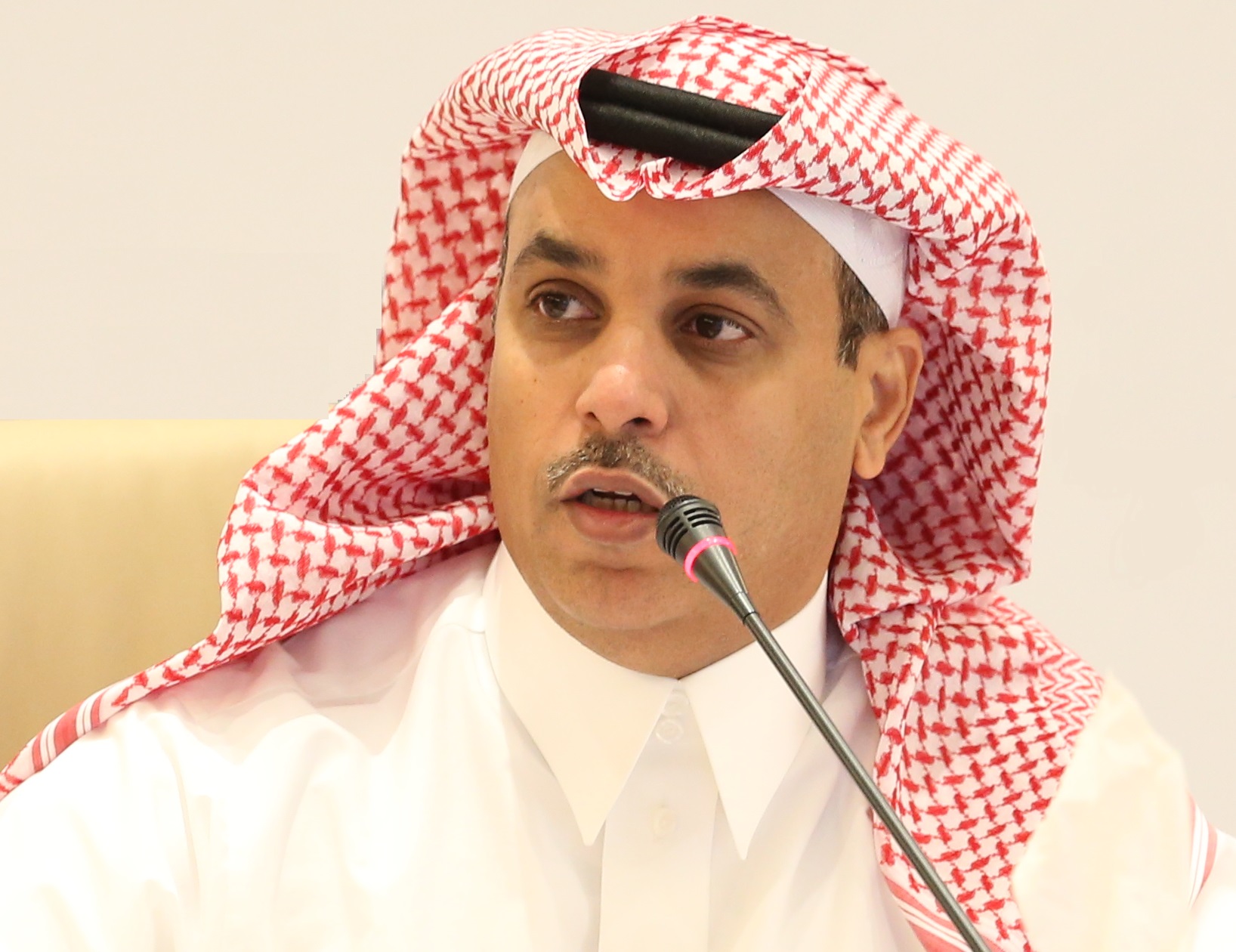
السعودية " الثانية عربياً والثامن والثلاثين عالمياً " ضمن الدول ذات التنمية البشرية المرتفعة جداً
According to the human development report issued by a UN program with a remarkable progress
Saudi Arabia is “the second country on the Arab world level and the thirty eighth internationally” within the very high-level human development countries
Saudi Arabia registered the second rank on the Arab world level and the thirty eighth internationally within the very high-level human development countries according to the human development report issued by the UN developmental program 2016.
Dr. Fahad bin Sulaiman Altekhaifi, GaStat president, clarified that Saudi Arabia has reached that remarkable progress which was reflected in the human development report issued by the UN developmental program 2016. He added, Saudi Arabia was classified within the countries that have the highest levels of human development.
His Excellency assured that the report is one of the annual reports issued by the UN developmental program since 1990. In addition to the main topics it discusses and resolves annually, the program includes many statistical tables of various indicators, the most important of which is a table that contains the human development guide classified by the level of human development all over the world. This guide is considered a standard that summarizes all achievements in the field of development through three main dimensions: individual health life, knowledge acquisition, and the proper living standard.
He indicated that this improvement in the Saudi level of human development is continuous one. During the past three years, Saudi Arabia registered the (39th) rank last year, the (55th) rank in 2010, and the (77th) rank in 2005. This progress is attributed to the noticeable improvement in all elements of the human development guide which are represented in the expected age of birth, the expected average of studying years which means the expected number of studying years that a child is expected to spend since he/she starts going to school, supposing that the rates of this process by age groups remain stable during all times. The guide elements also include the gross national income per capita which is calculated by the purchase power rate in Dollar.
It is worth mentioning that the human development report divides the world into four groups by value of human development guide’s indicator. Countries with low-level human development have a value of (0R550), whereas countries with intermediate-level human development, their value ranges between (0R550) and (0R699). However, countries with high-level human development have a guide value that ranges between (0R700) and (0R799), and countries with a very high-level of human development have a value of (0R800) or more. The Saudi indicator mentioned in the 2016 report registered (0R847).
Dr. Fahad stressed that this report reflects the level of human development that Saudi Arabia witnesses in many fields. It shows the exerted efforts on many levels. These efforts were achieved as a response to the continuous directions of the custodian of the two holly mosques, his crown prince, and his deputy crown prince. It also reflects the goals upon which the 2030 Saudi vision is made, the vision that represents a promising document that aims at achieving the sustainable development and coping with all rapid developmental changes internationally.
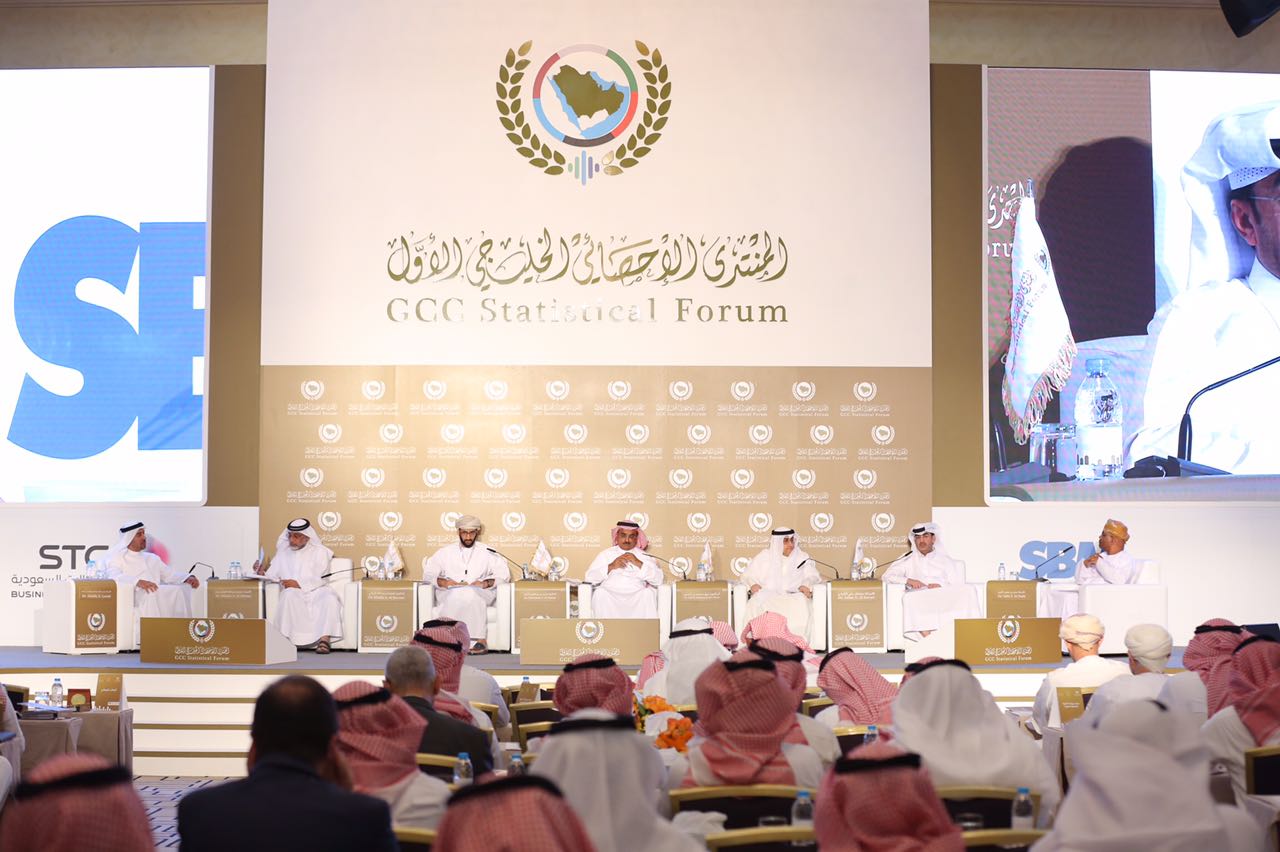
الرياض تعلن 14 توصية في ختام المنتدى الإحصائي الخليجي الأول
Based on 3 Strategic Pillars
Riyadh Announces 14 Recommendations at the Conclusion of the First GCC Statistical Forum
The First GCC Statistical Forum held in Riyadh concluded by announcing 14 recommendations, co-drafted by decision and policy makers, academia, private sector, in addition to the leaders of the statistical data and information authorities, systems and centers in the GCC countries and international and regional organizations. The participants in the Forum, organized by the General Authority for Statistics in Saudi Arabia and the GCC Statistical Center, stressed the importance, moving forward, of strengthening and increasing the effectiveness of the ongoing efforts in the various related fields, based on three strategic pillars (Partnerships, Development and Harmonization, and Resources).
The participants also agreed on the importance of holding the Forum on a regular basis ever two years, to monitor progress and achievements in the areas of joint work and collaboration, and discuss the latest developments in the demand for and the production and dissemination of official statistics. The next forum will take place, in Muscat, in March 2019.
This announcement came along with the Forum participants’ acknowledgment of the extra burden put on the national statistical authorities, centers and systems by the ever increasing and evolving demand for better quality statistics.
The recommendations on the Partnerships Pillar stressed the need to (i) Strengthen the cooperation and dialogue mechanisms between statistics users and producers at the national level, so that the needs of users are met and the priorities are set in a better way; (ii) Enhance coordination and cooperation between producers of statistics in countries, to share knowledge and best practice, avoid duplication of efforts, and increase the quality of official statistics; (iii) Improve coordination and cooperation at the regional and international levels, to keep pace with and ensure contribution to and benefit from relevant developments, and to exchange expertise and experiences; (iv) Explore the potential of public private partnerships in statistics, to increase the frequency of data and develop new data sources; and (v) Foster collaboration and partnerships with the academic community in the GCC region, to serve a wide array of objectives including improving statistical literacy, adding value to statistical production, increasing the correct use of data, and strengthening training and capacity development.
In terms of the Development and Harmonization Pillar, the participants recommended to (i) Improve the quality and comparability of official statistics, to meet the needs of users; (ii) Incorporate contemporary international statistical standards and classifications; (iii) Enhance the use of administrative registers to produce official statistics; (iv) Take full advantage of modern statistical tools and technologies; and (v) Promote the correct use of statistics and statistical awareness and culture in society.
Finally, regarding the Sources Pillar, the participants’ recommendations included to (i) Operate statistical agencies in an efficient, cost-effective and results-based manner; (ii) Attract and keep qualified GCC nationals in the statistical work; (iii) Increase the effectiveness and coverage of capacity development programs; and (iv) Explore alternative sources of funding and cost sharing outside the framework of official statistics including with the private sector.
For the recommendations of the first Gulf Statistical Forum | Press here
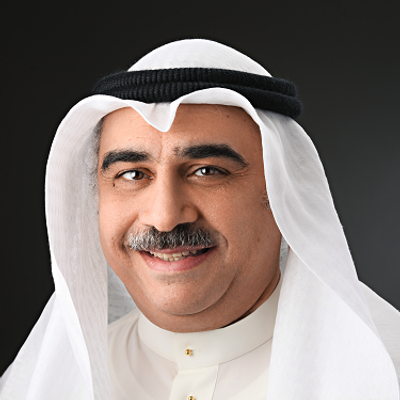
برعاية خادم الحرمين الشريفين معالي وزير الاقتصاد والتخطيط يفتتح فعاليات المنتدى الإحصائي الخليجي
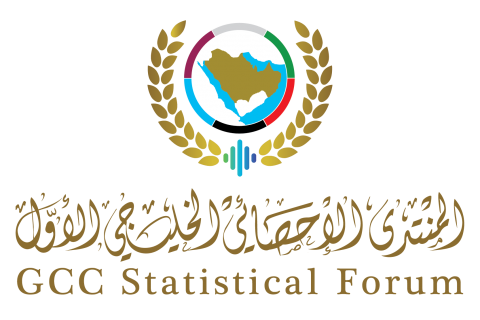
27 جناح علمي وتوعوي في المعرض المصاحب لفعاليات المنتدى الإحصائي الخليجي الأول
27 Scientific and Awareness-raising Booths in the Exhibition accompanying the First GCC Statistical Forum
The Forum events which will be held in Riyadh under the theme " enhancing statistical collaborations to support economic policies and sustainable development in the GCC region", under the patronage of the custodian of the Two Holly Mosques king Salman bin Abdulaziz Al Saud, and organized by the general authority for statistics and the GCC statistical center on 21-23 Jumada second 1438 H corresponding to 20-22nd of March 2017, will be accompanied by an exhibition that contains 27 scientific and awareness raising booths, in collaboration with the GCC countries and the GCC statistical center, in addition to a number of establishments specialized in statistical and informational technology.
Mr. Taiseer Almofarrej, the official spokesman of the General Authority for Statistics, stressed that the Forum welcomes visitors such as , specialists, academia, students and government entities leaders to know more about statistical methodologies in different fields; economic, social, energy and natural resources, open data, statistical awareness and sustainable development.
The forum which will gather 40 speakers from the gulf region and other countries, data producers and users, and people from the academic sector, focuses on main axes which are: statistical data and information request resulted from the national developmental tracks, sustainable development agenda and international economic issues, discussing the provision of statistical products and services to support the national developmental tracks and sustainable development in the GCC region, in addition to discussing the statistical collaborations between data producers and users to support the economic policies and sustainable development in the GCC region.
The events of the Forum will start with 4 sessions within two days, the sessions will start with discussing the first axe which is about statistical data and information request: the request from an international prospective and focusing on the international issues and their impact on policies and reforms all over the world in general and in the gulf region in particular. In addition to data needs and gaps, it will also discuss request from a national and regional perspective, a general session titles" producing and publishing statistics: the strategic motives of the national statistical entities' works", followed by a general session about the third axe which is associated with collaborations " next steps: towards sustainable mechanisms and framework for cooperation between users and producers". Along with the forum activities, 6 workshops will be held: the first will discuss measuring the progress in achieving sustainable development goals, the second is about enhancing statistical knowledge. As for the third, it will be about the statistical media. In the fourth workshop, the participants will get to know the mechanisms of statistics development by using information and communication technologies. However, the fifth will discuss data revolution which will present cooperation between Arab countries to get benefited from data revolution in enhancing the production and publishing of statistics. After that, two presentations will be presented by one of the GCC countries and the GCC statistical center about the preparations and challenges. Regarding the last workshop, it will discuss the collaborations between the public and private sectors in the field of statistics.

STC أعمال الراعي التقني لفعاليات المنتدى الإحصائي الخليجي
STC Business technical sponsor for the Gulf Statistical Forum
Under the Royal hospice of the Custodian of the Two Holy Mosques, King Salman bin Abdulaziz Al Saud - may God protect him - and with the organization of the General Authority for Statistics and GCC Statistical Center, STC Business will participate, as an activities technical sponsor, in the Gulf Statistical Forum, which will be held under the theme "Enhancing Statistical partnerships to support economic policies and sustainable development in the GCC countries.", at the Marriott Hotel in Riyadh during the period from March 20th to 22nd, 2017.
The Forum will bring together 40 GCC and international speakers to discuss strengthening the statistical partnerships in view of supporting economic and development policies. They will discuss several key issues which are: requirement for data and statistical information ensuing from national development trends, the agenda for sustainable development and emerging global economic issues, provision of statistical products and services to support national development trends, and sustainable development in the GCC countries, in addition to conducting research on enhancing the statistical partnerships between users and producers of data to support the economic policies in the GCC countries.
STC Business pavilion accompanying the forum, will display a group of communication services and information technology solutions, with an explanation of the most important advantages and benefits that contribute to the success of statistical work and support digital transformation in the domestic and the Gulf region.
This sponsorship comes within STC Business endeavor to support and meet the requirements and needs of their customers in both public and private sectors, through a variety of connectivity products based on mobile and fixed networks technology, providing integrated digital solutions, cloud computing , and managed services.
STC Business Unit provides solutions and services, telecommunications and information technology in a way that meets the government and companies demands and requirements. This is carried out through the most advanced data centers distributed around the Kingdom. These centers are connected through a network of optical fibers whose length attains more than 147, 000 kilometers, and are supported with a mobile network covering 96% of the populated areas in KSA, and uses technologies of the Second and Third Generation, while 96% of the network uses the Fourth Generation technology known as LTE. These national networks are linked to the world through a number of cross-border land and sea cables and an Internet gate which is the largest in the MENA region, where its communication capacity attains 1.5 Terabit / sec. and passes 12 Beta Bytes of data per day.
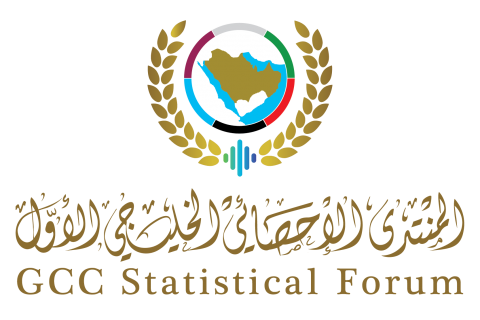
8 أيام تفصل عن انطلاق فعاليات المنتدى الإحصائي الخليجي الأول
8 days until the beginning of the 1st GCC statistical forum events
After 8 days, the 1st GCC statistical forum events will begin in Riyadh under the theme " enhancing statistical collaborations to support economic policies and sustainable development in the GCC region". The forum will be under the patronage of the custodian of the two holly mosques king Salman bin Abdulaziz Al Saud, and organized by the general authority for statistics and the GCC statistical center on 21-23 Jumada second 1438 H corresponding to 20-22nd of March 2017.
The forum, in which there will be 40 speakers from the gulf region and other countries, other people who are specialized in statistics such as data producers and users, and people from the academic sector, focuses on main axes which are: statistical data and information request resulted from the national developmental tracks, sustainable development agenda and international economic issues, discussing the provision of statistical products and services to support the national developmental tracks and sustainable development in the GCC region, in addition to discussing the statistical collaborations between data producers and users to support the economic policies and sustainable development in the GCC region.
The first day will witness the opening event. Many political personalities will attend such as ministers, GCC general secretariat leaders, ambassadors, statistical organizations heads, international and regional organizations representatives, statistical sector specialists, media, and other participants.
The forum events will begin with 4 sessions on the first two days. On these sessions, the first axe will be discussed from an international perspective which is about statistical data and information request. Also, the sessions will discuss the international issues and their impact on the policies and reforms all over the world and on the gulf region in particular. Data needs and gaps will be taken into consideration too. Data request will be discussed also from a national and regional perspective. There will be a general session titled " statistics production and publication: the strategic motives of the national statistical organizations works". It will be followed by another general session that discusses the third axe which is about collaborations " next steps: towards sustainable framework and mechanisms for cooperation and dialogue between users and producers".
Along with the forum events, there will be 6 seminars; the first will discuss measuring the progress in achieving the sustainable development goals, the second is about enhancing the statistical knowledge. Whereas the third will focus on statistical media, and the fourth is about the mechanisms od statistical development by using information and telecommunication technologies. On the fifth seminar, data revolution will be discussed, it will present the cooperation between Arab countries to benefit from data revolution in enhancing statistics production and publication. After that, there will be two presentations about the preparations and challenges, they will be presented by one of the GCC countries and the GCC statistical center. As for the last seminar, collaborations between the public and private sectors in the field of statistics will be discussed.
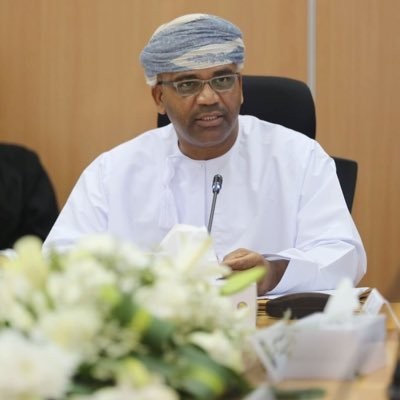
لأول مرة.. انطلاق المنتدى الإحصائي الخليجي في العاصمة الرياض.. نهاية الشهر الجاري
Gathering 40 gulf and international speakers, discussion sessions and workshops
For the first time… the launching of the GCC Statistical Forum in Riyadh.. the end of this month
Sabir Al Harbi: the patronage of King Salman confirms his interest in reinforcing GCC joint work
Hessa AlJanahi: the meeting of data producers and users will contribute in building sustainable frameworks and mechanisms for cooperation
The Director General of the Statistical Centre for the Cooperation Council for the Arab Countries of the Gulf (GCC-Stat), Mr. Sabir bin Said Al Harbi, affirmed that the patronage of the Custodian of the Two holy Mosques of the first statistical forum which will be held later this month confirms his interest in reinforcing GCC joint work, enabling the cooperation in the development and economy files, and linking and coordinating between GCC countries in all fields.
Mr. Al Harbi stressed on the importance of the forum which will be held for the first time, gathering 40 gulf and international speakers with data producers, data users, and the academic sector. They will discuss many main axes like: the request of statistical data and information that results from the national- developmental tracks, sustainable development agenda, and international economic issues. They will also discuss the provision of statistical data and services to support the national- developmental tracks and sustainable development in the GCC region. In addition to discussing the main theme which is enhancing statistical collaboration between data users and producers to support economic policies and sustainable development in the GCC region. The forum will be under the theme " enhancing statistical collaborations to support economic policies and sustainable development in the GCC region" under the patronage of the Custodian of the Two Holly Mosques king Salman bin Abdulaziz Al Saud, and organized by the general authority for statistics and GCC- Stat.
The Director General of GCC-Stat pointed that the forum comes in a time when current global political and economic developments forms a challenge in the Gulf Region, which leads us to guard by precise economic development trends that fit global changes, especially statistical wise. This appears in the importance of the existence of good, reliable, classified and timely data that measures the progress towards achieving economic growth and diversifying its sources.
On the other hand, the GCC-Stat consultant, Mrs. Hessa AlJanahi, said that the forum is considered one of the manifestations of GCC governments interest to building sound national statistics derived from strategic motivations that serve the goals of 2030 sustainable development.
Mrs. AlJanahi predicted that the meeting of data producers, data users and relevant sectors will contribute in building sustainable frameworks and mechanisms for cooperation and creating strong collaborations in order to bridge the gap between statistics producers, including, statistical systems and statistics users from government and public entities, academics, researchers, or other users.
The forum will start with the opening on the first day. Many politicians will attend such as ministers, GCC secretariat leaders, ambassadors, statistical organizations presidents, national and international organizations representatives, statisticians, media specialists, and other participants.
In the next two days, the sessions will start with discussing the first axe which is about statistical data and information request: the request from an international prospective and focusing on the international issues and their impact on policies and reforms all over the world in general and in the gulf region in particular. In addition to data needs and gaps, it will also discuss request from a national and regional perspective, a general session titles" producing and publishing statistics: the strategic motives of the national statistical entities' works", followed by a general session about the third axe which is associated with collaborations " next steps: towards sustainable mechanisms and framework for cooperation between users and producers". Along with the forum activities, 6 workshops will be held: the first will discuss measuring the progress in achieving sustainable development goals, the second is about enhancing statistical knowledge. As for the third, it will be about the statistical media. In the fourth workshop, the participants will get to know the mechanisms of statistics development by using information and communication technologies. However, the fifth will discuss data revolution which will present cooperation between Arab countries to get benefited from data revolution in enhancing the production and publishing of statistics. After that, two presentations will be presented by one of the GCC countries and the GCC statistical center about the preparations and challenges. Regarding the last workshop, it will discuss the collaborations between the public and private sectors in the field of statistics. Statistical sector interested individuals can register to attend the forum events by visiting the website through the link: https://www.stats.gov.sa/gccsf/en
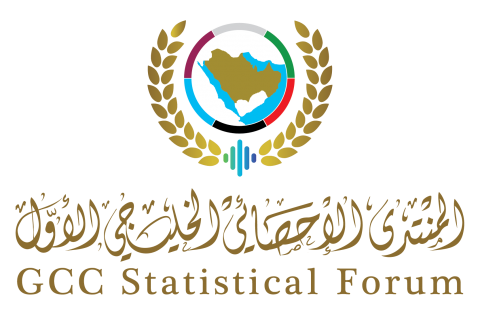
40 متحدثاً خليجياً ودولياً يناقشون تعزيز الشراكات الإحصائية لدعم السياسات الاقتصادية والتنمية.. في مارس المقبل
Within the activities of the first GCC statistical forum
40 speakers from the gulf and other regions discuss enhancing statistical collaborations to support economic policies and development, next March
GCC statistical forum, which will be held in Riyadh from 21st to 23rd of Jumada 2nd corresponding to 20th to 22nd of March 2017, is receiving 40 speakers from the gulf and other regions of the world, in addition to several people who are interested in statistics. They all will be gathering in a forum held for the first time under the theme " enhancing statistical collaborations to support economic policies and sustainable development in the GCC region" under the patronage of the two holly mosques king Salman bin Abdulaziz Al Saud, and organized by the general authority for statistics and GCC statistical center.
The forum will gather many people who deal with statistics such as: data producers, data users, and the academic sector. They will discuss many main axes like: the request of statistical data and information that results from the national- developmental tracks, sustainable development agenda, and international economic issues. They will also discuss the provision of statistical data and services to support the national- developmental tracks and sustainable development in the GCC region. In addition to discussing the main theme which is enhancing statistical collaboration between data users and producers to support economic policies and sustainable development in the GCC region.
In details, the opening of this forum will be on the first day. Many politicians will attend such as ministers, GCC secretariat leaders, ambassadors, statistical organizations presidents, national and international organizations representatives, statisticians, media specialists, and other participants.
On the next day, the sessions will start with discussing the first axe which is about statistical data and information request: the request from an international prospective and focusing on the international issues and their impact on policies and reforms all over the world in general and in the gulf region in particular. In addition to data needs and gaps. The session will be headed by Mr. Abdulaziz Alfuraih, vice governorate of the Saudi Arabian monetary fund. Prof. many speakers will start on that day such as: Enrico Guvannini, economic statistics professor in Roma university, Italy, Mr. Paul Schreyer, vice director of statistics in OECD, Mr. Jose Roberto Rosales, deputy director of statistics department in IMF, and dr. Khalfan bin Mohammed Albarwani, vice executive president of banking operations, research, and statistics in Oman central bank.
As for the second session, it will be headed by dr. Johannes Jütting, director of Paris secretariat in the OECD. They will discuss request from a national and regional perspective. The participants in this session include: de. Salem bin Nasser Alqudhai'e, vice minister of economy and planning, Mrs. Faridah Abdulrahim Khanji, director of analysis and assessment department in the office of his highness the president of ministers' cabinet in Bahrain, ambassador. Ashok Nigam, UN Resident Coordinator and UNDP Resident Representative for the Kingdom of Saudi Arabia, Mr. Khalifah bin Saeed Alabri, assistant general secretary of economic and developmental affairs in the GCC general secretariat.
On the third day, the forum works continue with a session titles" producing and publishing statistics: the strategic motives of the national statistical entities' works". This session will be headed by ambassador. Mossa Kolaklikaya, general director of statistical, economic, and social research and training in the Islamic countries (Ankara center). The participants also include: Mr. Taiseer bin Mohammed Almofarrij, from the general authority for statistics in Saudi Arabia, Mr. Mohammed Hassan ahli, executive director of statistics and national data sector in the federal competitiveness and statistics authority, UAE, Mrs. Sawsan Dawood Allawati, general director of the information directory in the national statistics and information center, Oman, and dr. Rashoud bin Mohammed Alkhuraiyef, supervisor of demographic studies center in king Saud university.
After that, a general session about the third axe which is associated with collaborations will begin " next steps: towards sustainable mechanisms and framework for cooperation between users and producers" headed by Mr. Saber bin Saeed Alharbi, the general director of GCC statistical center, with the participation of the forum workshops heads to discuss the workshops results and recommendations according to the forum three axes: data request, producing and publishing data, and collaborations between statistics users and producers. At last, a final session will start to announce the forum recommendations.
Along with the forum activities, 6 workshops will be held: the first will discuss measuring the progress in achieving sustainable development goals, the second is about enhancing statistical knowledge. As for the third, it will be about the statistical media. In the fourth workshop, the participants will get to know the mechanisms of statistics development by using information and communication technologies. However, the fifth will discuss data revolution which will present cooperation between Arab countries to get benefited from data revolution in enhancing the production and publishing of statistics. After that, two presentations will be presented by one of the GCC countries and the GCC statistical center about the preparations and challenges. Regarding the last workshop, it will discuss the collaborations between the public and private sectors in the field of statistics.
At the end of the forum works, a session will be held and headed by dr. Fahad bin Sulaiman Altekhaifi, GaStat president. In this session, the forum recommendations will be announced regarding enhancing collaborations between statistical data and information producers and users on the national and regional levels. Then, a concluding speech will be delivered by GCC statistical center and the general authority for statistics.
